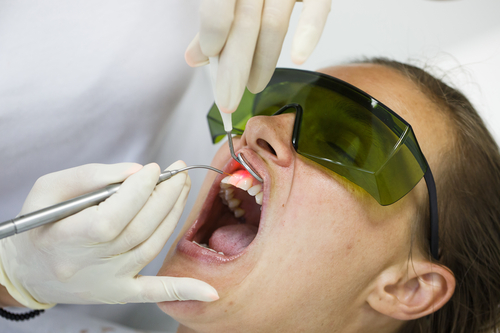Periodontal treatment is a surgical procedure designed to remove the plaque and tartar that injure the gums, bones, and teeth. This kind of treatment focuses on improving outcomes, but it can also help prevent future dental problems. The procedure involves removing the plaque and tartar accumulated around the teeth and gums.
Periodontal disease is a serious condition that can lead to severe consequences if left untreated. For this reason, people need to experience regular periodontal care. Although most of these procedures are performed by a qualified dental hygienist, some patients might be referred to an endodontist, oral surgeon or general dentist.
Who is it for?
People more likely to experience periodontal diseases, such as diabetics and smokers, may need extra help if they want to prevent severe complications in the future. People with a poor daily oral hygiene routine and those with certain medical conditions, like rheumatoid arthritis and AIDS, might require periodontal treatment.
Wearing down teeth is known as attrition – it happens all the time to everyone; it is part of the wearing process that allows teeth to be replaced by new ones in a lifetime. The problem is, however, that some people wear their teeth down faster than others.
This means that sooner or later, the teeth will no longer be able to be replaced by bone and have to be removed (extraction). Periodontal disease affects your ability to chew and swallow. For example, it may make it difficult for you to eat certain foods or affect your ability to drink liquids and keep water down.
Benefits of periodontal treatment
The benefits of periodontal treatment are numerous. They include:
1. Improved dental health
Most people with periodontal disease are at high risk for developing periodontal abscesses, deep infections that can cause severe pain and swelling. Extraction of infected teeth not only relieves pain and inflammation but also relieves the need for antibiotic treatment after the procedure.
For many people, this is a welcome result, as antibiotics kill both the disease-causing bacteria and the healthy bacteria in your mouth that help keep your teeth and gums healthy. Periodontal surgery can also allow you to return to eating foods you might have difficulty chewing or swallowing before the procedure. You can speak better after a periodontal procedure.
2. Preventative care
People with periodontal disease may experience severe gum complications, such as tooth loss and periodontal abscesses. This is a problem that can be avoided by undergoing periodontal treatment. If you don’t have any infected teeth, to begin with, this is the best way to prevent future infections.
3. Improved oral hygiene
Periodontal treatment can help you to maintain good oral hygiene. This helps to reduce the formation of plaque and tartar on your teeth and gums. By brushing twice a day, rinsing with fluoridated toothpaste, and flossing twice a day, you will be able to keep your pearly whites looking their best! To do this, you must visit your dentist every six months to clean and clean professional teeth-cleaning products.
4. Improved appearance
A healthy smile boosts your confidence. A smile with missing teeth or badly damaged gum tissue can make you self-conscious about your appearance, especially in public. After receiving periodontal treatment, your smile will look more natural and feel better when you talk. In addition, the surgery can improve your bite so that it doesn’t cause discomfort or pain.
5. Improved eating and communicating
People who experience periodontal disease often have difficulty chewing and swallowing foods. After a periodontal procedure, you may find you can drink more fluid without choking or having difficulty drinking from a glass. You may also be able to eat things you were unable to eat before treatment.
6. Reduced risk of other diseases
You are more likely to experience gum disease if you have diabetes, also known as diabetes mellitus. If you have diabetes and don’t care for your teeth and gums, you are at greater risk of developing conditions such as heart disease, high blood pressure, and stroke.
Conclusion
Periodontal disease can cause you to lose your teeth. If left untreated, it can also cause complications that include infections, tooth loss and poor eating habits. For these reasons, periodontal treatment is considered essential for those who want to protect the health of their gums and teeth.